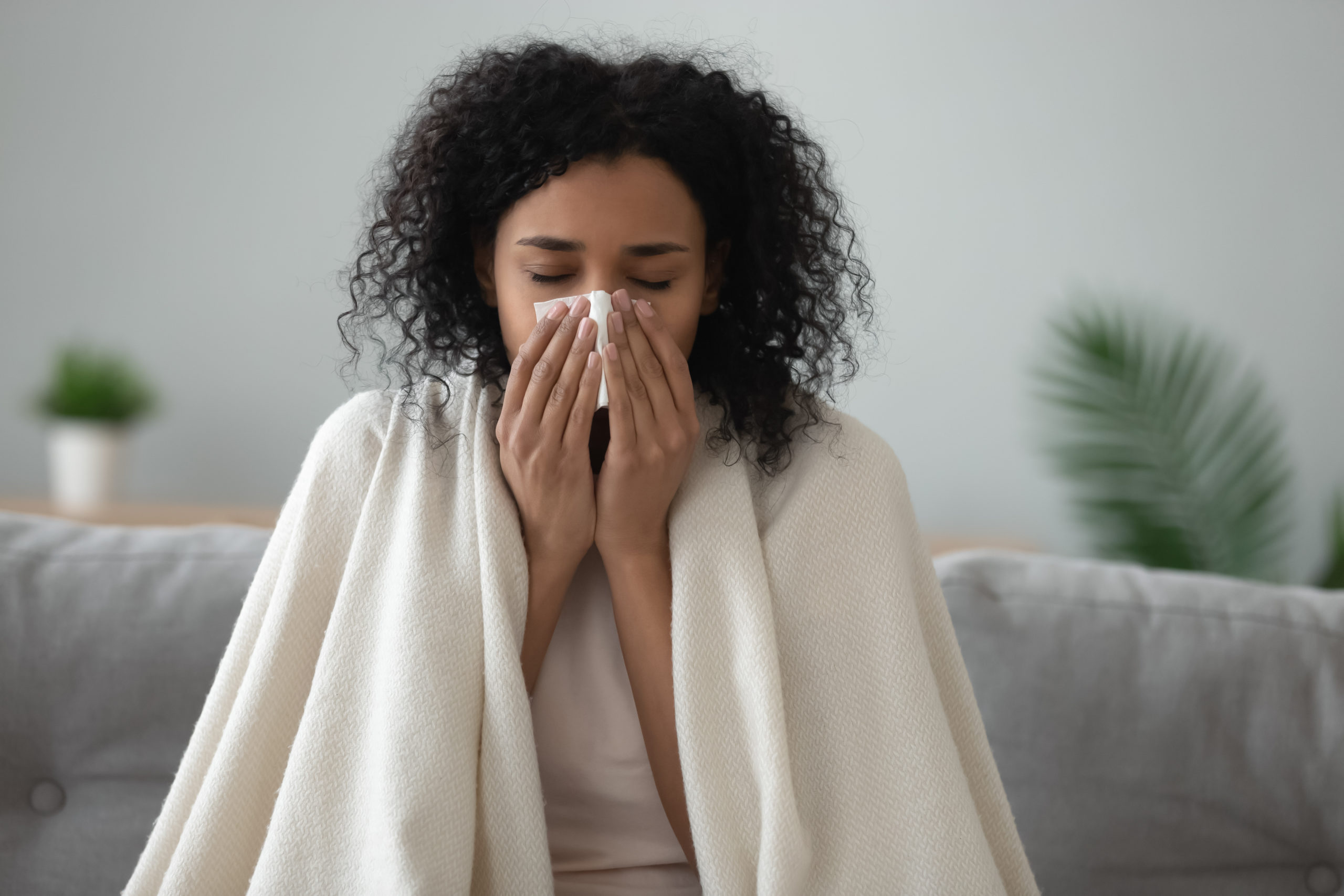We’ve all struggled with a cold at one time or another. It’s one of the most common viral infections of the nose and throat. In fact, adults can catch between two to five colds each year, and children catch even more.
But if sniffling, sneezing and coughing symptoms last for more than 7 days (the average length of a cold), you may actually have allergies. As you age, your immune system naturally weakens, which means your body’s response to allergens also weakens. As a result, your body could trigger an unexpected histamine or allergic reaction. Histamine is a chemical inside our body’s cells that helps start the process of removing allergens from your body.
So even if you’ve never had allergies before, it’s important to keep track of your symptoms and their duration so you can identify one of the key differences that set allergies apart from colds.
Common allergy symptoms
Common allergy symptoms include:
- Runny or stuffy nose
- Mild cough
- Fatigue
- Sneezing
- Watery eyes
- Sore throat
- General ache and pains
- Headache
Allergies occur when your body is exposed to certain allergens, like pollen, dust or pet dander. Most allergies occur around the same time every year and last as long as the allergen is in the air (typically 2-3 weeks).
Unlike allergies, colds are caused by a viral infection, are very contagious and can easily be transmitted from person to person.
Common cold symptoms
Common cold symptoms include:
- Runny or stuffy nose
- Mild cough
- Fatigue
- Sneezing
- Watery eyes
- Sore throat
- General ache and pains
Allergies vs. cold symptoms
You may have noticed the symptoms for colds and allergies listed above are very similar, so how can we tell them apart?
One of the biggest differences between cold and allergies is their duration. Colds last about 1 week, whereas allergies can last much longer. Here are three key differences between cold and allergies:
- Fever
Allergies will never cause a fever. If you have symptoms that include a fever of any kind, you most likely have a cold or the flu. - Itchy, watery eyes
While both the common cold and allergies can cause watery eyes, the key difference is whether your eyes are itchy. Itchiness in the eyes is a sign of allergies. - General aches and pains
General aches and pains are a symptom of the common cold and are not associated with allergies.
Allergies vs. cold treatments
Now that you know the key differences between a cold and allergy symptoms, let’s take a look at the most effective way to alleviate your symptoms.
When you have seasonal allergies, look for over-the-counter histamine blockers like Zyrtec, Allegra or Claritin. These medications work by traveling through your blood and latching onto histamine receptors (located on your cells). This action helps block more histamine from affecting healthy cells, which would exacerbate symptoms.
If you are new to allergy medications, please visit your healthcare provider or local urgent care to help you determine which medication is right for you.
Most cold symptoms can be treated with an over-the-counter medication that treats your worst symptoms, which is often related to congestion. Look for brands like Mucinex, Vicks DayQuil or Vicks NyQuil to help you breathe easier and rest. While these medications will not cure your cold, they can help alleviate symptoms so you can get back to your daily activities. If you or a loved one has been struggling with cold symptoms for more than 14 days, you may have allergies. Talk to one of the experienced physicians at Amory Urgent Care. We can help you feel better fast. We are open for walk-in appointments 7 days a week from 8 a.m. – 7 p.m.

